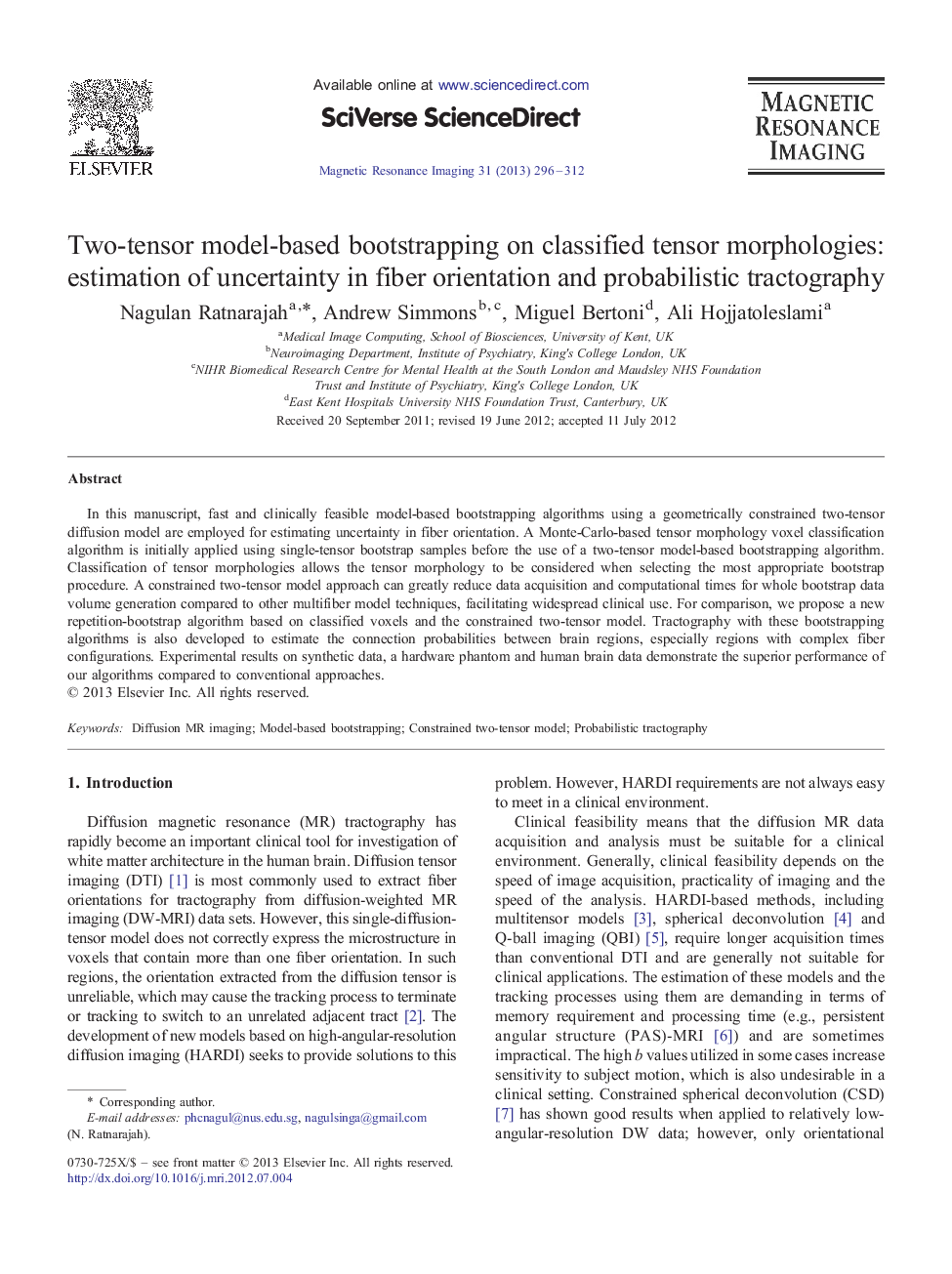| Article ID | Journal | Published Year | Pages | File Type |
|---|---|---|---|---|
| 1806635 | Magnetic Resonance Imaging | 2013 | 17 Pages |
In this manuscript, fast and clinically feasible model-based bootstrapping algorithms using a geometrically constrained two-tensor diffusion model are employed for estimating uncertainty in fiber orientation. A Monte-Carlo-based tensor morphology voxel classification algorithm is initially applied using single-tensor bootstrap samples before the use of a two-tensor model-based bootstrapping algorithm. Classification of tensor morphologies allows the tensor morphology to be considered when selecting the most appropriate bootstrap procedure. A constrained two-tensor model approach can greatly reduce data acquisition and computational times for whole bootstrap data volume generation compared to other multifiber model techniques, facilitating widespread clinical use. For comparison, we propose a new repetition-bootstrap algorithm based on classified voxels and the constrained two-tensor model. Tractography with these bootstrapping algorithms is also developed to estimate the connection probabilities between brain regions, especially regions with complex fiber configurations. Experimental results on synthetic data, a hardware phantom and human brain data demonstrate the superior performance of our algorithms compared to conventional approaches.
